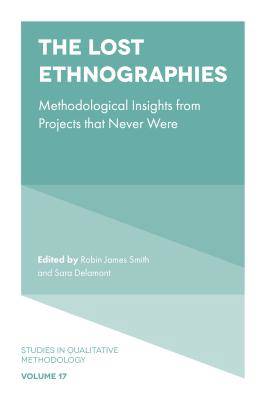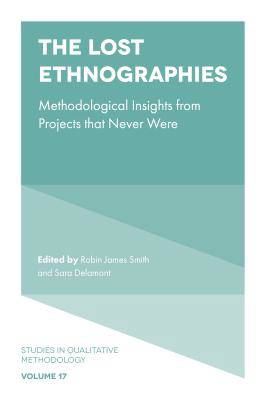
- Afhalen na 1 uur in een winkel met voorraad
- Gratis thuislevering in België vanaf € 30
- Ruim aanbod met 7 miljoen producten
- Afhalen na 1 uur in een winkel met voorraad
- Gratis thuislevering in België vanaf € 30
- Ruim aanbod met 7 miljoen producten
Zoeken
The Lost Ethnographies
Methodological Insights from Projects That Never Were
€ 101,45
+ 202 punten
Omschrijving
The Lost Ethnographies reports on the methodological lessons learnt from ethnographic projects that, viewed superficially, failed. Experienced researchers write about projects they planned, and were excited about, which then never began, had to be abandoned, or took such unexpected directions that it became a different piece of work altogether. The topics and settings are varied and disparate, but the lessons learnt have important similarities. This collection focuses on absences; topics and settings that remain under researched; taken for granted aspects of social life that have not been scrutinized, and finally the potential insights that are gained when absences are carefully examined and explored. Readers will learn a great deal about research design, fundraising, writing up, access negotiations, serendipity in the field, and the complex interaction between the body and the brain of the ethnographer and the realities of ethnographic research. Maximising learning from the 'failings' of ourselves and of others is the positive message of the collection. The most poignant chapters are those in which the author 'returns' to reread and reflect on a past project; something that is not done often enough, partly because it can be painful. The accounts of projects which had to be abandoned or radically changed offer hope to researchers facing difficulties in their own investigations. These reflections, on projects that were never even begun, show how to gain fresh energy and social science insight from apparent rejection, and the collection approaches the whole concept of lost ethnography in provocative ways.
Specificaties
Betrokkenen
- Uitgeverij:
Inhoud
- Aantal bladzijden:
- 192
- Taal:
- Engels
- Reeks:
- Reeksnummer:
- nr. 17
Eigenschappen
- Productcode (EAN):
- 9781787147744
- Verschijningsdatum:
- 7/01/2019
- Uitvoering:
- Hardcover
- Formaat:
- Genaaid
- Afmetingen:
- 155 mm x 231 mm
- Gewicht:
- 385 g

Alleen bij Standaard Boekhandel
+ 202 punten op je klantenkaart van Standaard Boekhandel
Beoordelingen
We publiceren alleen reviews die voldoen aan de voorwaarden voor reviews. Bekijk onze voorwaarden voor reviews.










